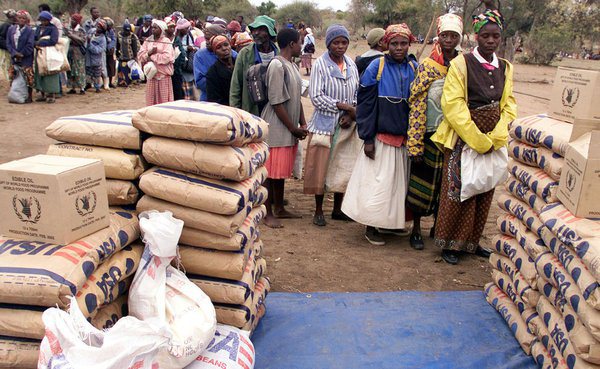Zimbabwe’s already dire food security situation is set to further worsen by year end, with more than half of the population requiring urgent assistance, a top United Nations (UN) envoy has warned.
The country is grappling with a crippling drought following a poor harvest in the past cropping season.
As a mitigation measure, the government has since restored grain subsidies which had been scrapped by Finance Minister Mthuli Ncube in his 2020 national budget statement.
The government has also suspended until May 2020 import duty on grain, to allow both individuals and corporates to bring maize meal into the country duty-free.
In her preliminary observations report, the UN Special Rapportuer on the right to food, Hilal Elver, who was in the country last week, painted a gloomy picture on Zimbabwe’s food security situation.
“I cannot stress enough the urgency of the situation in Zimbabwe,” said Elver.
“Currently, 60 percent of Zimbabwe’s population of 14 million is considered food-insecure, living in a household that is unable to obtain enough food to meet basic needs. By the end of this year, in only a few weeks, the food security situation is expected to worsen with an estimated 8 million people requiring urgent action to reduce food consumptions gaps and save livelihoods.”
She said a number of factors including widespread poverty, limited employment opportunities, liquidity challenges, pervasive corruption, economic instability, and mismanagement of funds, natural disasters and recurrent droughts were contributing to Zimbabwe’s food crisis.
The envoy, who was in the country for 10 days at the invitation of the government, said rural communities were the most affected by the drought.
“Additionally, households that depend largely on livestock production have been affected by animal diseases, induced by water shortages and other scarcities, while prices have declined due to poor conditions,” she bemoaned.
“Livestock being the most important asset of rural communities in periods of food crises, the income for these households has fallen sharply.”
During her visit, the rapportuer met with a number of stakeholders who included Ministers of Local Government, Health, Finance and Public Service Labour and Social Welfare.
She also met the director of Food and Nutrition Council and civic society organisations among other critical stakeholders.
“I very much regret that my requests to meet with the most critical Ministry that is, the Ministry of Lands, Agriculture, Water and Rural Resettlement did not work out,” lamented Elver.
The UN envoy, however, said it was not the end of the road for the country.

